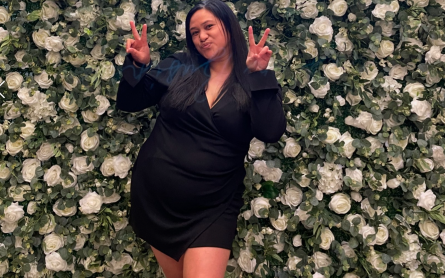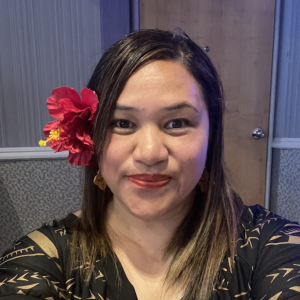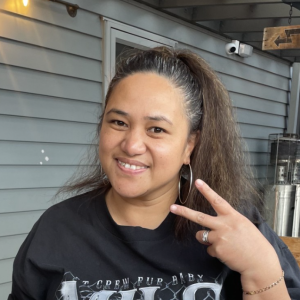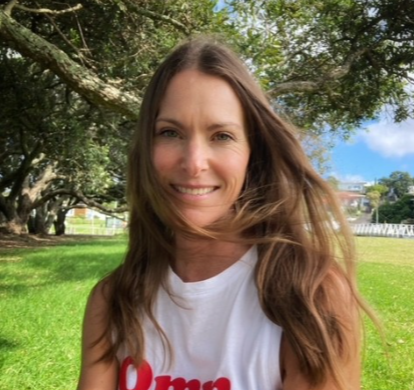
Planning & budgeting
Saving & investing
KiwiSaver
Tackling debt
Protecting wealth
Retirement
Home buying
Life events
Setting goals
Money tracking
Plan your spending with a budget
Getting advice
Studying
Get better with money
What pūtea beliefs do you have?
How to build up your emergency savings to cover unexpected costs
How to save your money
How to start investing
Find a financial adviser to help you invest
Your investment profile
Compound interest
Net worth
Types of investments
Term deposits
Bonds
Investment funds
Shares
Property investment
How KiwiSaver works and why it's worth joining
How to pick the right KiwiSaver fund
Make the most of KiwiSaver and grow your balance
How KiwiSaver can help you get into your first home
Applying for a KiwiSaver hardship withdrawal
How to use buy now pay later
What you really need to know before you use credit
How to get out of debt quickly
Credit reports
Know your rights
Pros and cons of debt consolidation
Credit cards
Car loans
Personal loans
Hire purchase
Student loans
Getting a fine
What happens if I start to struggle with moni?
How to protect yourself from fraud and being scammed
About insurance
Insurance types
Insuring ourselves
Wills
Enduring powers of attorney
Family trusts
Insuring our homes
Losing a partner
Redundancy
Serious diagnosis
How to cope with the aftermath of fraud
Separation
About NZ Super
This year's NZ Super rates
When you’re thinking of living in a retirement village
How to plan, save and invest for retirement
Manage your money in retirement
Find housing options in retirement
Four approaches to spending in retirement
Planning & budgeting
Saving & investing
How to build up your emergency savings to cover unexpected costs
How to save your money
How to start investing
Find a financial adviser to help you invest
Your investment profile
Compound interest
Net worth
Types of investments
Term deposits
Bonds
Investment funds
Shares
Property investment
View all
KiwiSaver
Tackling debt
How to use buy now pay later
What you really need to know before you use credit
How to get out of debt quickly
Credit reports
Know your rights
Pros and cons of debt consolidation
Credit cards
Car loans
Personal loans
Hire purchase
Student loans
Getting a fine
What happens if I start to struggle with moni?
View all
Protecting wealth
Retirement
Home buying
28 July 2025
Reading time: 5 minutes
Told to Philippa Prentice,
3 comments

A bit about Noreen: Noreen is a New Zealand-born Samoan mother of two, raised in South Auckland. Devoted to shaping a strong foundation for her children, her passion lies in equipping her young family members with the financial knowledge she wishes she had growing up, so they start their journey with the tools they need to build a secure future.
My partner and I are equipped to handle smaller financial surprises, such as unexpected car repairs, and prioritise maintaining at least three months’ worth of expenses in our emergency account. Having this financial cushion significantly reduces our anxiety about unforeseen circumstances and provides us with a greater sense of security, knowing we can support ourselves and potentially other family members during difficult times.
My children are heavily involved in sport, and between registration fees, uniforms, travel and other related costs, supporting their passion can be quite a financial undertaking. Having an emergency fund allows me to readily cover these expenses and them to participate, even when unexpected costs arise with little warning.
We also consider unexpected Samoan family obligations or events, fa’alavelave, to be emergencies. Both of my parents have more than eight siblings, so funerals, weddings, title bestowments and other major events involve deeply rooted cultural obligations to express love, respect and support. Despite living in New Zealand and facing economic challenges, we still feel obligated to contribute financially.

“We also consider unexpected Samoan family obligations or events, fa’alavelave, to be financial emergencies.”
I remember the time my dog became seriously ill and needed an urgent trip to the vet. After X-rays and treatment, I received a $1800 invoice. This happened shortly after a significant payment for my daughter’s school sports trip to Tauranga, so even though we had an emergency savings fund at the time, it wasn’t enough to cover these two events. It prompted me to re-evaluate my spending and discuss increasing our contributions to our emergency savings with my partner to avoid future distress.
In 2018, when we bought our first home, we received a $5000 cash-back offer from the bank, which we immediately put into our emergency fund, giving it an initial boost. Since then, we’ve consistently contributed to this account each fortnightly payday. Every January, we review our expenses from the previous year, consider the current cost of living, and agree on a transfer amount. We started with $100 each per fortnight in January 2018 and upped it this past January to $150.
This year, I also started a 12-month, $10,000 challenge for extra motivation. Beyond my regular contributions to my emergency fund, instead of making impulse purchases, I’m depositing any spare cash I have into a big piggy-bank-style tin that I got from a dollar store and have turned into my own savings game. I’ve written values of $5, $10, $20, $50 and $100 across 480 squares from my son’s old math book – yes, I’m upcycling too! – and if I add the corresponding value to the tin and cross it off, it’ll all add up to $10,000. This strategy gives me hope for a stress-free Christmas this year, because we’ll have it covered.

“Although some people prefer to clear debt before saving, I find it motivating to build a safety net at the same time.”
Prioritise paying yourself first. Even small amounts like $5 or $10 weekly add up.
Treat it as a non-negotiable habit, not an afterthought. Making contributions to your fund a normal practice is key.
Get on to it ASAP. Although some people prefer to clear debt before saving, I find it motivating to build a safety net at the same time. Seeing both debt decrease and my emergency savings grow fuels my drive to become debt-free faster, strengthens my safety net and stops me feeling stagnant.
Set boundaries. To prevent impulsive spending, my partner and I keep our emergency fund in a shared savings account that requires us both to be present at the bank for any withdrawals.
Consider your emergency fund money dedicated to your future. Initially, I struggled with resisting the temptation to spend, but when I started to think of it as an investment in my future self, who could potentially work less and enjoy more leisure time, this mindset became a strong motivator.
If you’d like to join the conversation and share your own experiences with money, we’d love to hear from you. Fill in this form, and we’ll get back to you. Ngā mihi!
 Philippa Prentice
Philippa Prentice
Philippa is Sorted’s communications specialist. Previously a journalist for 20 years, whose work has been published in Aotearoa and Australia, she says Sorted has been a game-changer for her own finances.
Use verification code from your authenticator app. How to use authenticator apps.
Code is invalid. Please try again
Don't have an account? Sign up
Or log in with our social media platforms


A free account gives you your very own space where you can save your tools and track your progress as you get ahead.
Or sign up using Google:



Comments (3)
Comments
2 October 25
Anonymous
Excellent Noreen. I am looking for ideas to pass on to our staff that may help them in the long run. Kapai.
6 August 25
Anonymous
Ka pai Noreen - inspirational story that I can relate to. Ngā mihi e hoa
6 August 25
Anonymous
This is amazing cous. Worth the read
No one has commented on this page yet.
RSS feed for comments on this page | RSS feed for all comments